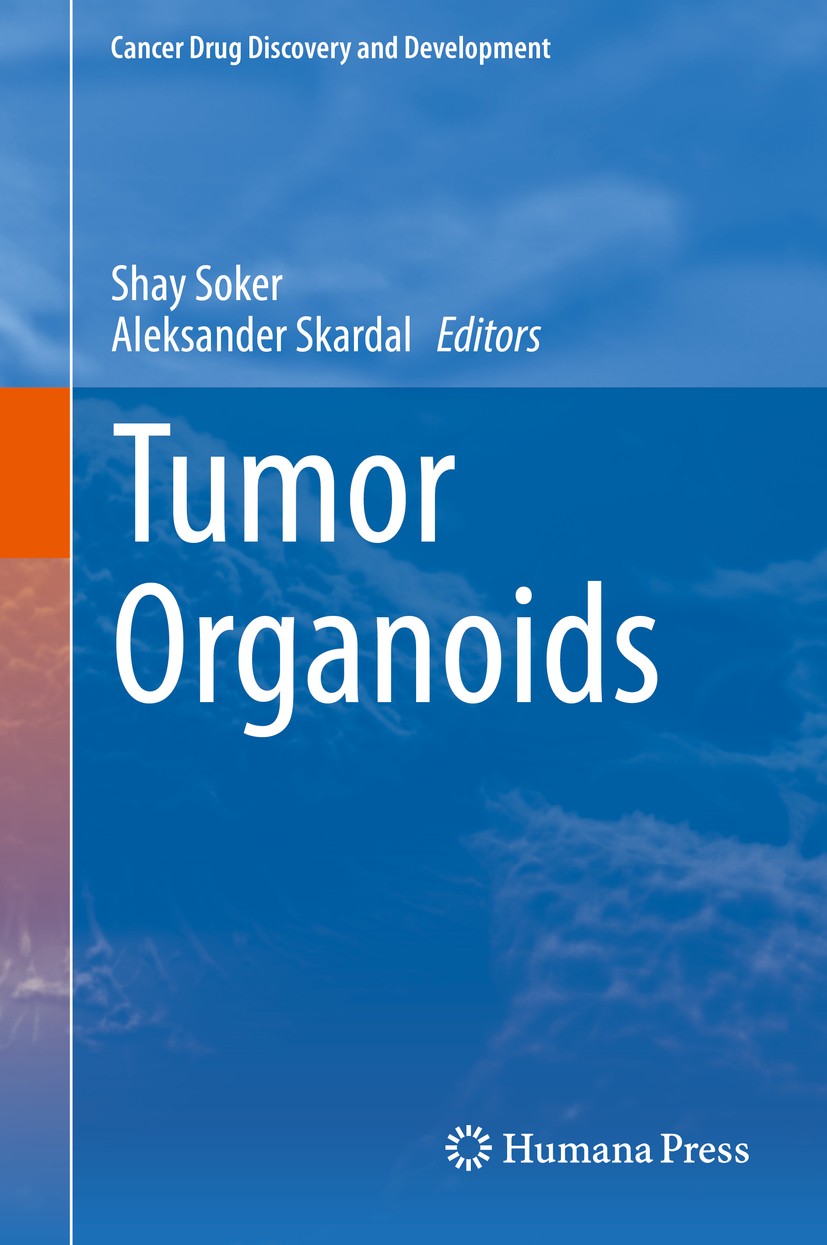| 书目名称 | Tumor Organoids |
| 编辑 | Shay Soker,Aleksander Skardal |
| 视频video | http://file.papertrans.cn/931/930821/930821.mp4 |
| 概述 | Highlights the development by the emerging field of regenerative medicine of bioengineered tissue platforms that best mimic the structure and cellular heterogeneity of in vivo tissue.Details how micro |
| 丛书名称 | Cancer Drug Discovery and Development |
| 图书封面 |  |
| 描述 | .Cancer cell biology research in general, and anti-cancer drug development specifically, still relies on standard cell culture techniques that place the cells in an unnatural environment. As a consequence, growing tumor cells in plastic dishes places a selective pressure that substantially alters their original molecular and phenotypic properties.The emerging field of regenerative medicine has developed bioengineered tissue platforms that can better mimic the structure and cellular heterogeneity of in vivo tissue, and are suitable for tumor bioengineering research. Microengineering technologies have resulted in advanced methods for creating and culturing 3-D human tissue. By encapsulating the respective cell type or combining several cell types to form tissues, these model organs can be viable for longer periods of time and are cultured to develop functional properties similar to native tissues. This approach recapitulates the dynamic role of cell–cell, cell–ECM, and mechanical interactions inside the tumor. Further incorporation of cells representative of the tumor stroma, such as endothelial cells (EC) and tumor fibroblasts, can mimic the in vivo tumor microenvironment. Collectiv |
| 出版日期 | Book 2018 |
| 关键词 | 3-D Human Tissue; Anti-Cancer; Drug Development; In Vivo; Organoids; Stroma; Tumor |
| 版次 | 1 |
| doi | https://doi.org/10.1007/978-3-319-60511-1 |
| isbn_softcover | 978-3-319-86874-5 |
| isbn_ebook | 978-3-319-60511-1Series ISSN 2196-9906 Series E-ISSN 2196-9914 |
| issn_series | 2196-9906 |
| copyright | Springer International Publishing AG, part of Springer Nature 2018 |
 |Archiver|手机版|小黑屋|
派博传思国际
( 京公网安备110108008328)
GMT+8, 2026-2-7 12:49
|Archiver|手机版|小黑屋|
派博传思国际
( 京公网安备110108008328)
GMT+8, 2026-2-7 12:49


